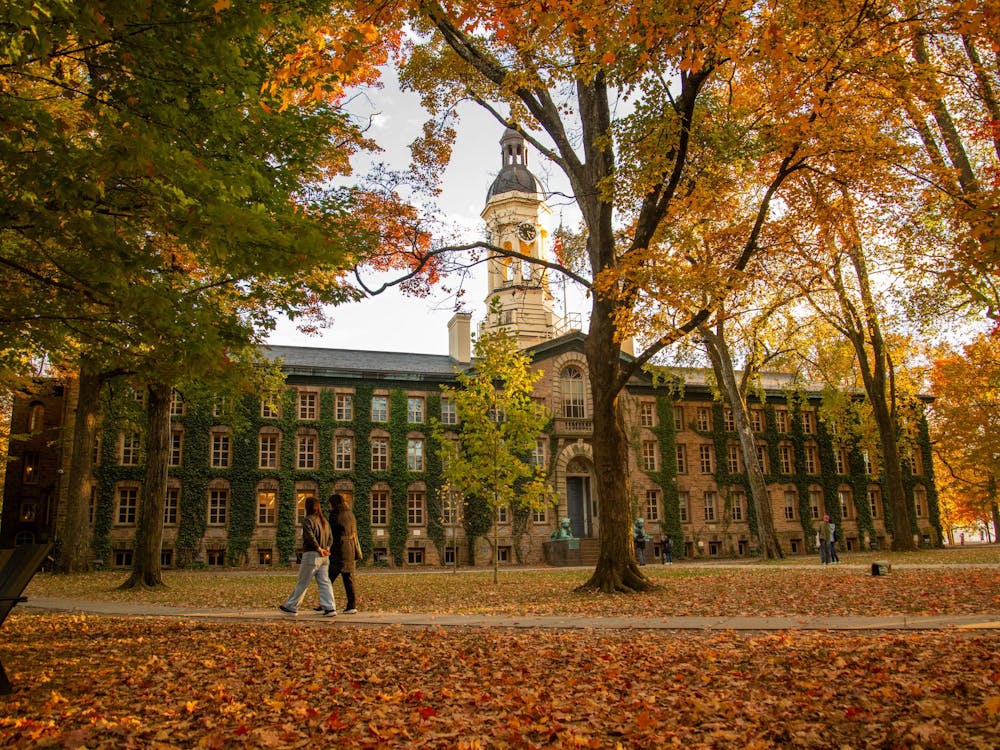Students and community members gathered in McCormick Hall on Monday afternoon for a panel discussion titled “Judging Around the World.” Chief Justice of New Zealand Dame Sian Elias and former Advocate General at the European Court of Justice Miguel Poiares Maduro headlined the panel, which was hosted by the University’s Program in Law and Public Affairs.
The panel discussed a variety of legal topics, focusing on the role that international courts play in the world and in their respective jurisdictions, and how they relate to those in the United States.
“The United States is an important case in the world, but it’s not the only case,” said Kim Lane Scheppele, moderator of the panel and director of LAPA.
Both panelists acknowledged the clear differences between the national court in New Zealand and the supranational European Court of Justice. “We do have a few things in common though,” Elias said. “One is the newness of the institutions.”
Appointed to her current office in May 1999, Eliasis the 12th Chief Justice of New Zealand and the first woman to be appointed to that office.New Zealand’s Supreme Court was established in 2004, becoming the nation’s final level of appeals, which was until then handled by the Privy Council in London, Elias explained.
“It was very difficult to set up a new culture in the court, and I think that this is going to be quite a long-term project,” Elias added.
Maduro noted that, unlike in the U.S. legal system, there is no firm constitutional document on which either of their courts rely.
“The court itself interpreted the treaties upon which the European Union was founded not simply as international law instruments but, in the words of the court, as the constitutional charter of Europe,” Maduro said, explaining the important role the treaties play. “It was seen as not just the product of the wills of the member states, but the product of the wills of the peoples of Europe.”

Scheppele raised the question and implication of how courts increasingly cite foreign courts’ opinions in their domestic decision.
“We’re currently having this huge fight in the United States about whether the U.S. courts should cite any foreign source,” Scheppele said, noting a recent bill pending in Congress that would call for the impeachment of any judge who cites a foreign legal opinion.
“We’re not bothered by searching for help wherever we can get it; it’s been our legal tradition,” Elias added, also noting that, unlike New Zealand, “the U.S. does have a very rich source of jurisprudence.”
During the question and answer segment, University professor Anne-Marie Slaughter ’80 offered a comment on that issue as well. “I do think it’s true that among liberal democracies, most other courts that our court would look to are considerably to the left. And so one of the reasons there is so much objection is precisely that we have so much to look to in our own jurisprudence,” she explained.

Another question raised was the role the judges’ respective institutions would have in the future.
“The community of the European Court of Justice is now a much broader community,” Maduro said. He explained that in some ways the court could “become increasingly more powerful, particularly in controlling the powers exercised by the European Union itself.”
Elias predicted changes would inevitably occur in her country as well, saying, “I do see developing constitutionalism in New Zealand,” speculating on the evolution that such a young supreme court system could take.
Scheppele noted that this would be the first in a series of panels on both U.S. and comparative constitutional law hosted by the Program in Law and Public Affairs.







